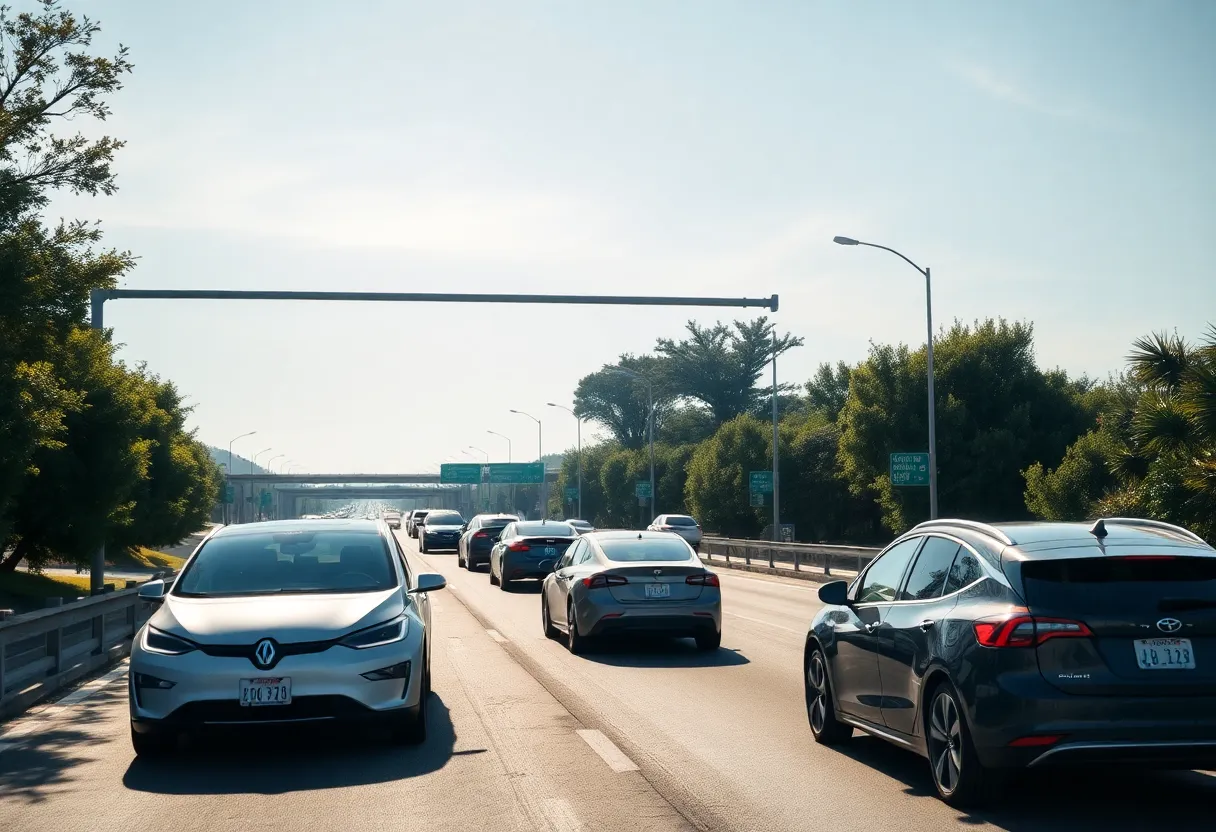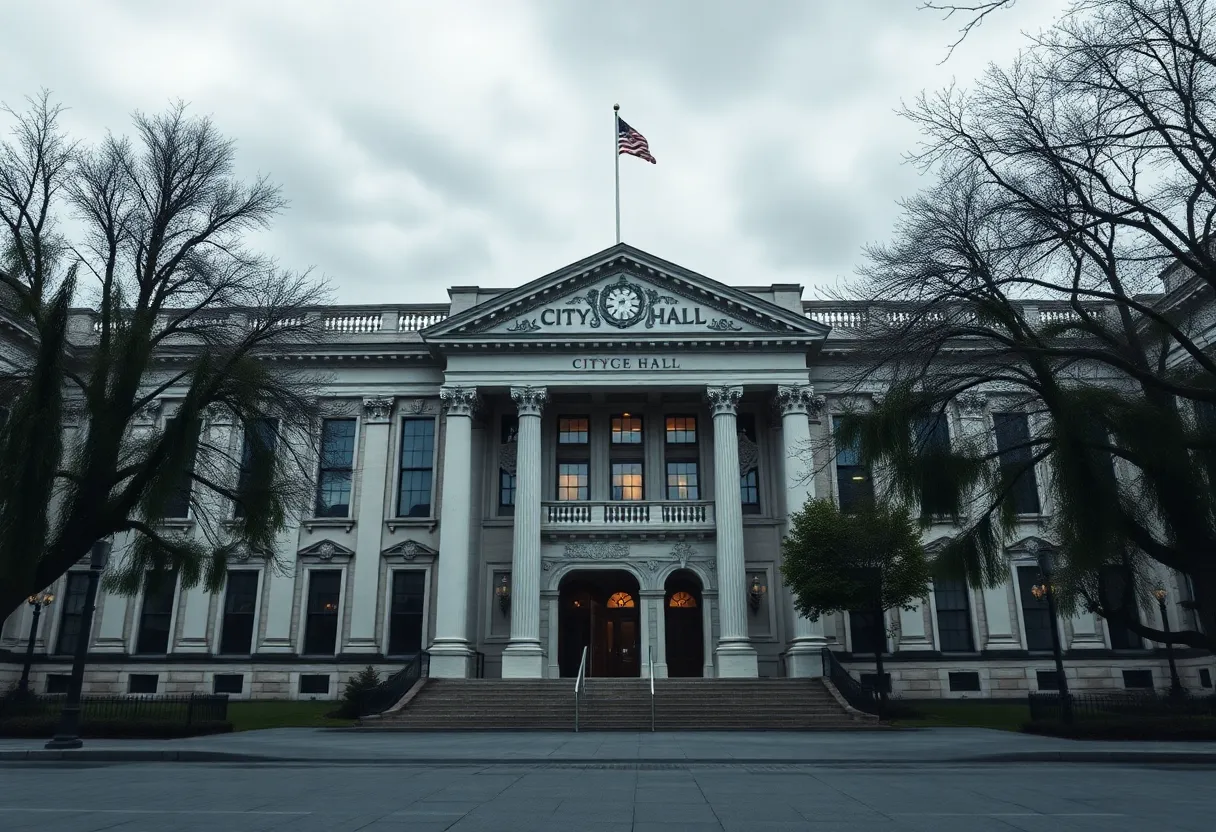News Summary
The U.S. Senate has voted 51-44 to revoke California’s vehicle emissions waivers, impacting clean air initiatives across the nation. This decision has garnered support from the Specialty Equipment Market Association while facing backlash from environmental advocates. This move could nullify ambitious state mandates for zero-emission vehicles. Critics warn the revocation jeopardizes efforts for cleaner air and may lead to legal actions from California officials.
California
The U.S. Senate has voted to revoke California’s vehicle emissions waivers in a move that could significantly affect clean air initiatives across the nation. The final tally was 51-44, with the decision receiving praise from the Specialty Equipment Market Association (SEMA) while facing opposition from environmental advocates. This new legislation is anticipated to be signed into law by the President shortly.
California had previously been granted the authority to establish stricter emissions standards than federal regulations under the Clean Air Act, a provision dating back to the presidency of Richard Nixon. This power allowed California to enforce vehicle emission rules that aimed to reduce pollution and improve air quality, an approach that has also been adopted by nearly a dozen other states and the District of Columbia.
With the Senate’s decision, this legislative change will not only impact California but also other states that have opted for similar emissions standards. California’s Air Resources Board (CARB) had announced an ambitious mandate requiring 35% of new cars sold by 2026 to be zero-emission vehicles, progressively escalating to a target of 100% by 2035. The recent ruling will nullify the Environmental Protection Agency’s (EPA) previous notices that allowed such specific state-level restrictions.
Environmentalists are voicing strong concerns that the repeal will endanger nationwide efforts to achieve cleaner air and decrease pollution levels. They argue that allowing California to continue its regulations was a critical component to address air quality issues that affect approximately 150 million Americans.
Meanwhile, the SEMA has lauded the repeal, arguing that it safeguards over $100 billion in economic impact and protects 330,000 jobs that are reliant on internal combustion engine technology. Supporters of the legislation assert that California’s stricter standards place undue burdens on the economy and limit consumer choices in the automotive market.
In conjunction with the repeal, new taxes have been introduced, including a $250 annual tax for electric vehicle owners, in contrast to approximately $82 in gas taxes for traditional vehicles. This financial aspect has stirred up additional debates about the economic implications of the legislation.
The use of the Congressional Review Act by Republican members to repeal California’s waivers marks a significant shift in federal oversight of state emissions regulations. However, nonpartisan bodies, including the Senate parliamentarian, have raised questions about the legality of this maneuver. Critics are warning that California may pursue legal action against the federal government should the legislation proceed as expected.
The move has drawn sharp criticism from officials in California, including Governor Gavin Newsom, who argue that it undermines decades of clean air protections. The California Air Resources Board, which has been issuing waivers for over 50 years, claims that this is the first instance of such a revocation.
The revocation not only raises concerns about the immediate impacts on air quality but also jeopardizes California’s broader vision for energy transition, which requires substantial advancements in infrastructure that might now be unachievable. Environmental activists fear that the decision could thwart California’s aggressive targets for reducing greenhouse gas emissions and transitioning to electric vehicles by 2045.
This recent development has sparked a larger conversation about the future of congressional intervention in state environmental policies, as environmentalists and policymakers alike ponder the long-term repercussions of such a federal overreach on localized efforts to combat climate change.
Deeper Dive: News & Info About This Topic
- CBS News
- The Guardian
- Politico
- Autoweek
- Car and Driver
- Wikipedia: Clean Air Act
- Google Search: California vehicle emissions standards
- Google Scholar: California emissions waivers
- Encyclopedia Britannica: Clean Air Act
- Google News: California car emissions news

Author: Anaheim Staff Writer
The Anaheim Staff Writer represents the experienced team at HEREAnaheim.com, your go-to source for actionable local news and information in Anaheim, Orange County, and beyond. Specializing in "news you can use," we cover essential topics like product reviews for personal and business needs, local business directories, politics, real estate trends, neighborhood insights, and state news affecting the area—with deep expertise drawn from years of dedicated reporting and strong community input, including local press releases and business updates. We deliver top reporting on high-value events such as major conventions at the Anaheim Convention Center, including NAMM and VidCon, exciting games at Angel Stadium and Honda Center, and developments at Disneyland Resort Our coverage extends to key organizations like the Anaheim Chamber of Commerce and Visit Anaheim, plus leading businesses in hospitality, entertainment, and innovation that power the local economy As part of the broader HERE network, including HERECostaMesa.com, HEREHuntingtonBeach.com, HERESantaAna.com, and HERELosAngeles.com, we provide comprehensive, credible insights into Southern California's dynamic landscape.




